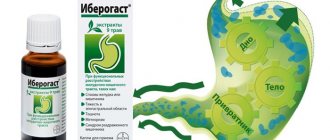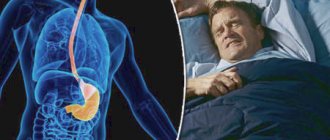Changes in the body at 38 weeks
A period of 38 weeks is the tenth obstetric month, or the end of the ninth calendar month; at this period, childbirth is completely natural, and you can expect it from day to day.
The baby is ready for birth, he is mature and has gained enough weight to fully exist outside the mother’s belly. But for labor to begin, both the child and his mother must be fully prepared and a special level of hormones must be achieved. You should not try to speed up the approach of this process - everything should be in due time so that no complications arise. Now the fetus is no longer gaining height and weight so actively, it has become very crowded in the uterus, and in recent weeks there has been a physiological decrease in the amount of amniotic fluid so that physiological oligohydramnios is formed. This is necessary so that during childbirth there is less chance of malpresentation and umbilical cord prolapse. But if the child is in a breech position, then there is practically no chance of a revolution, and the issue of managing the birth is decided. Now everything should be ready for this event and the maternity hospital itself should be selected. You are already ready to meet the baby, and the last days of pregnancy bring a lot of discomfort to the mother. Now it is uncomfortable to move and walk, sleep, and the stomach is at its maximum size. The skin on the abdomen is very stretched, it itches and dries very much. The navel has become stretched or even turned out, but after childbirth it will become normal. For convenience during childbirth, the fetal head is pressed tightly against the pelvic floor, causing the abdomen to lower. This is a signal of imminent labor, along with all other harbingers.
What causes heartburn in pregnant women?
First of all, you should pay attention to the fact that the disease being studied during this period is considered to be a reflection of powerful hormonal changes in the patient’s body. The level of progesterone in the blood increases sharply, which relaxes the muscles of the uterus to avoid miscarriage. But the relaxing effect of this hormone also extends to other smooth muscle fibers, which are located in hollow organs, for example in the stomach, intestines, and esophagus. Between the esophagus and the stomach is the lower esophageal sphincter, which prevents stomach contents from leaking directly into the esophagus. However, progesterone relaxes this barrier, and gastric contents penetrate the esophagus, thereby irritating the mucous membrane with acid.
What else causes heartburn in pregnant women? The reason for the occurrence of this symptom in the second trimester may be the uterus, which greatly increases in size and puts pressure on the internal organs related to the abdominal cavity, including the stomach. Because of this, the stomach splashes all its contents directly into the esophagus.
Speaking about what causes heartburn in pregnant women, it should also be noted that women during this period often suffer from constipation, which is explained by the influence of progesterone. In order for the food gruel, which lingers in the intestines for a long time, to quickly leave it, the woman strains, which increases the increase in intra-abdominal pressure. Because of this, the stomach begins to throw its own contents into the esophagus.
Bends, sudden movements, and turns of the body cause the stomach to change its location in the abdominal cavity, splashing its contents into the esophagus. If you are wondering why pregnant women have heartburn in the 3rd trimester, then this may be the reason.
Fetal development at 38 weeks: weight, size and gender
The baby is ready for birth and labor can begin at any time; now his body weight is about 3100-3300 g, and his height is from 50 to 52 cm. Body weight increases by 30-50 grams daily. The child's skin is almost free of vernix, which can only remain in large folds, and the fluff (lanugo) has almost completely disappeared from the body. A lot of meconium, the original feces, has accumulated in the baby’s large intestine, which will be passed after birth. But if the fetus suffers in the womb, emptying can occur earlier, before birth, which leads to a greenish coloration of the water and the risk of intrauterine pneumonia.
In boys, at this time, the testicles have completely descended into the scrotum, and in girls, the large genitalia have completely covered the small ones. Doctors will check this at birth, determining the full-term and maturity of the baby. Now the child has become beautiful, he has become rounded and his cheeks have become plump, facial features have individuality and may be similar to the faces of his parents, the skin has become smooth and acquired a soft pink tint, quite long hairs have grown on the head, nails have grown longer than the fingertips, and the baby may be born with blue or dark eyes. Dark eyes usually do not change color, but blue-eyed children can completely change it.
The child is still growing and there is very little space in the uterus for him; he barely fits in it, curled up and bringing his arms and legs to his tummy. It’s difficult for him to move now, and you need to carefully monitor the rhythm of the fetus’ movements; if the baby doesn’t make itself known for a long time, you need to immediately report this to the doctor. In general, there should be at least one obvious movement per hour, with periods of more or less activity. Now the child’s organs and systems are already formed and actively working, except for the lungs, which will begin to work with the child’s first independent breath. The nervous system is actively maturing, which will continue after birth; the baby has now formed all the reflexes necessary for independent life. In the following weeks, the baby will also grow and gain weight, awaiting the imminent birth with the mother.
Childbirth and precursors at 38 weeks
At this time, the birth is already considered urgent, and the baby is fully term; most often, girls, twins, or second and subsequent children are born at this time. Emerging warning signs will clearly let you know that labor is about to begin. From the beginning of their appearance, everything needs to be thoroughly checked - bags, documents, dowry. During this period, precursors are found in almost all women, but the degree of their severity is individual for everyone.
First of all, false contractions become more active - they become more noticeable and more frequent, although they are not regular and do not lead to dilatation of the cervix. If childbirth is imminent, the uterus begins to train more actively, contracting more often and more sensitively. At such moments, it is worth lying down to rest; usually training contractions subside, but if these are true contractions, they will increase in strength and pain, occur with regularity and do not go away after sleep and rest.
The imminent approach of childbirth may also be indicated by a stop in weight gain or its loss of 1-2 kg; this occurs due to the convergence of edema and a decrease in the pregnant woman’s appetite, a special physiological “cleaning” of the body. Loose stools, nausea, and even vomiting may occur. There should be no fever or signs of infection.
An increase in discharge may also occur with the gradual release of a mucus plug or the immediate release of a lump of pink or brownish mucus. This occurs due to the gradual preparation of the cervix and the opening of the internal pharynx, which leads to injury to small vessels, which gives color to the plug.
A lowering of the abdomen can also occur; this occurs due to the pressing of the fetal head to the area of the exit from the pelvis. This leads to easier breathing and reduced heartburn and relief from constipation. But due to increased pressure on the bladder and rectum, trips to the toilet may become more frequent. This may cause pain in the sacrum, pelvis and groin.
The warning signs may not be present for everyone or may not be as obvious, especially for women who are not giving birth to their first child.
The birth this week will be urgent, the baby will be fully term and will not require special monitoring if he is completely healthy. If the birth is natural, you can arrive at the maternity hospital with contractions or the discharge of amniotic fluid. If a cesarean section is planned, usually during this period hospitalization is carried out in the maternity hospital in preparation for surgical delivery. The onset of labor is marked by the discharge of amniotic fluid or regular uterine contractions, intensifying and at gradually shorter intervals.
Feelings of the expectant mother
Now the main feeling of the expectant mother is enormous fatigue and impatience to meet the baby soon, the mother is physically tired of carrying such a load - her body weight along with her stomach has increased by almost 15 kg, or even more. Now the woman feels that the child has become less mobile, his movements are felt more strongly, but less frequently, which is quite normal - the child has grown up, and he has become more cramped due to a decrease in the amount of amniotic fluid. Now his movements are felt like pushes, slight stretching or swaying. This is also useful for maintaining the correct position of the baby for childbirth, and the walls of the uterus tightly enveloping it on all sides. Despite all the unpleasant sensations, the movements of the fetus must be strictly monitored - from them the mother can determine its condition and whether the baby is experiencing discomfort. If the fetus is too active or inactive, you should immediately consult a doctor; this may be a sign of fetal hypoxia.
The expectant mother may now be overcome by insomnia, this arises due to anxiety about the future birth, as well as due to a large belly, with which it is uncomfortable to lie on her back or even on her side. There is a feeling of discomfort in the lower abdomen, pain and inconvenience. As the body prepares for childbirth, nausea and vomiting may occur due to decreased appetite, as well as diarrhea. Although during this period, while the stomach has not yet dropped, constipation is also common, which is painful for the pregnant woman. It gradually becomes easier, after the stomach has dropped, breathing becomes easier, especially during exercise. Swelling gradually goes away, which can lead to weight loss. But if swelling only increases, spots appear before the eyes and headaches - immediately go to the hospital, this may be the beginning of preeclampsia.
How to prevent the appearance
There are a number of rules, following which you can significantly reduce the likelihood of heartburn while carrying a baby:
- It is necessary to monitor nutrition: a pregnant woman should exclude spicy, fried, fatty, sour, salty, and smoked foods from her diet. Monitor not only the cooking method, but also the quality of the products.
- Eat small meals 5-7 times a day, avoid overeating.
- Do not go to bed immediately after eating. This habit can lead not only to heartburn, but also to excess weight gain. You should have dinner three hours before going to bed.
- Do not eat foods that most often cause heartburn in a woman.
- Chew your food well.
- Get rid of bad habits - alcohol, smoking.
- Do not take antispasmodic drugs without a doctor’s prescription (papaverine, drotaverine, no-spa, etc.).
- Include enough vegetables and dairy products in your diet.
- Do not exercise immediately after eating.
- Drink at least 1.5–2 liters of water per day.
- Don't eat too hot or cold food.
- Avoid consumption of chocolate, carbonated drinks, baked goods, sour fruits, coffee, tea, fast food, and spices.
- Don't wear tight clothes.
- Avoid stress.
- Monitor oral hygiene and treat teeth on time.
- Sleep on a high pillow.
Traditional methods of treatment
In an “interesting situation,” not only many medications are contraindicated, but also herbs. Therefore, traditional medicine in the treatment of heat behind the sternum suggests the use of certain foods that can help cope with the signs of the disease. The following can help get rid of unpleasant sensations:
- fresh cucumber;
- dairy products: milk, ayran, kefir (1 tbsp.);
- vegetable oil (1 tsp);
- oatmeal cooked in water;
- mineral water without gas: “Essentuki”, “Borjomi”;
- pumpkin seeds, sunflower seeds;
- jelly;
- persimmon;
- honey;
- boiled green peas;
- nuts: hazelnuts, walnuts, almonds, cashews;
- low-fat puree soup;
- apple;
- carrot juice or finely grated carrots.
Is it possible to drink soda while expecting a baby?
Baking soda can instantly suppress the signs of illness. But this heartburn remedy has only a short-term effect. Most often, after drinking soda, the burning sensation returns again. According to experts, sodium bicarbonate should not be taken orally during pregnancy, as this can further aggravate the situation and lead to a new attack. Doctors also note other consequences of long-term use of soda:
- Water retention in the body may be caused;
- the digestion process worsens;
- the acid-base balance in the body is disturbed;
- dizziness, nausea, headaches, decreased blood pressure may appear;
- there is a risk of other gastrointestinal diseases.
Activated carbon
Many expectant mothers during heartburn are saved by ordinary activated carbon. The drug is not absorbed into the blood, which means it does not harm the child. It is taken at the rate of one tablet for every 10 kg of a woman’s weight. The tablets can be crushed or taken whole with water or milk. Activated carbon absorbs acid in the stomach, due to this the condition of the pregnant woman improves.
But this harmless drug may also have contraindications: if a woman suffers from constipation or is prone to it, she should not take activated charcoal.
Can you take herbs for heartburn?
While expecting a baby, women are limited in taking medications, since the use of most of them is unsafe during pregnancy. But few people know that not only chemicals, but even herbs are contraindicated. Plants that seem harmless at first glance can cause miscarriage, uterine tone, softening of the cervix, kidney problems, etc. in a pregnant woman.
On the Internet you can find many recipes for herbal teas that are designed to help relieve the symptoms of heartburn. Thus, infusions of chamomile, anise, St. John's wort, sage, etc. are common. All these plants are prohibited during pregnancy.
Before brewing aromatic herbal tea to relieve burning in the chest, you should consult a specialist. Especially if a woman has chronic diseases, allergic reactions, the threat of miscarriage or pregnancy pathologies.
Pain
Typically, discomfort and pain occur when the stomach drops; its head presses against the pelvic area, which puts pressure on the pelvic bones. This can lead to pain in the lower back, sacrum and tailbone, many women also experience pain between the legs and problems with movement, the gait becomes waddling, slow and careful. Compression of the femoral nerve may occur with pain in the hip, leg, and sacrum. Pain in the back and arms may also occur due to a shifted center of gravity and a large belly, which puts stress on the back. Wearing a special bandage can help relieve these pains. Cramps and pain in the calf muscles may occur due to problems with blood circulation and calcium deficiency. Headaches may occur, especially due to fear of childbirth and stress. Getting enough sleep and walking can help in this case.
Abdominal pain, especially accompanied by bleeding from the vagina, requires special attention. It is no less dangerous if the stomach constantly becomes stone - these may be signs of uterine tone and placental abruption. In this condition, you must immediately call emergency services and go to the maternity hospital.
It is worth paying attention to swelling if it not only does not go away, but also intensifies, while your health worsens and severe headaches and abdominal pain, diarrhea and mouth pain occur, blood pressure rises sharply - this is very dangerous and may be a sign of complications of gestosis, preeclampsia .
Why does heartburn bother you in the later stages?
The feeling of heartburn in the last weeks of pregnancy is partly associated with active progesterone production. This hormonal substance helps relax the uterine muscle tissue, as well as other organs that have smooth muscle fibers. As food enters, the sphincters that connect the organs of the digestive system open.
When their tone drops, an uncontrolled release of food masses, partially processed by gastric secretions and enzymes, occurs in the opposite direction. Semi-digested food masses, mixed with bile, enzymes and gastric juices, burn the esophageal walls, since this section normally has a lower acid level.
As the uterine body grows, intra-abdominal pressure increases, which significantly slows down the digestive processes. The baby puts a lot of pressure on his stomach. By the last month of gestation, the baby grows to its maximum size, so the mother begins to suffer from severe attacks of heartburn. The main cause of acid dyspepsia and heartburn in late pregnancy is a decrease in smooth muscle tone and uterine pressure on the digestive structures. As a result of reflux, enzymes enter the esophageal walls. Also, provoking factors such as: can provoke unpleasant acid-dyspeptic symptoms:
- Increased gastric acidity, the concentration of which is influenced by hormonal changes.
- Stressful conditions in which patients experience an increase in gastric acidity. In this case, the functioning of the sphincter is disrupted. In addition to heartburn, the patient has chest pain. A similar condition often occurs in pregnant women before delivery.
- Excess weight. The more kilograms gained during gestation, the higher the intra-abdominal pressure rises and the epigastric burning intensifies.
- Antispasmodics like No-Shpa or Drotaverine can also provoke acid dyspepsia in a future mother. Such medications help relax the connecting valve connecting the esophagus to the gastric cavity.
Other Possible Causes
Also, a burning sensation can occur with gastrointestinal pathologies such as cholecystitis and pancreatitis, gastritis and bulbitis.
When overeating, the uterus begins to support the gastric body, therefore, even if the usual portions are slightly exceeded, the contents are pushed into the cavity of the esophagus.
If the patient spends a lot of time on the move, on her feet, or lives a sedentary life, then burning discomfort in the epigastrium may also occur. In addition, heartburn occurs due to reflux, which is provoked by sleeping in an uncomfortable position or stress on the spine.
When wearing an uncomfortable bandage or tight clothing, the child moves or actively kicks.
These are the most common factors that can lead to heartburn in a pregnant woman.
Discharge
This week, the nature of the discharge may become different in comparison with previous weeks, the amount of discharge may become greater, and this is due to the active preparation of the birth canal for the upcoming birth. Normal vaginal discharge will be light or milky in color, uniform consistency and a very slight sour odor, although mucous discharge of a transparent or slightly pinkish, brownish color is now quite acceptable. This brown or pink discharge is part of the mucous plug from the cervix, which is shed as the cervix prepares for childbirth. However, the plug may come off at once in the form of a dense lump of mucus, this is also quite normal - you will soon be giving birth.
Bloody discharge, and especially scarlet or dark blood, which may indicate bleeding due to placental abruption, can be dangerous. In this condition and abdominal pain, you cannot hesitate for a minute, you must immediately go to the maternity hospital, otherwise the child may die in utero from hypoxia, and the woman from bleeding. No less dangerous during this period can be yellow or greenish discharge, discharge with a strong unpleasant odor, as well as crumbly, curdled or foamy discharge. This may be a genital infection that needs to be eliminated as soon as possible before birth, so as not to infect the baby with it while passing through the birth canal.
What to pay attention to
Heartburn manifests itself as a burning sensation behind the breastbone. It occurs with gastritis with high acidity due to the fact that gastric juice enters the esophagus.
Hydrochloric acid does not irritate the walls of the stomach, as it contains protective factors. But once the acid enters the esophagus, it contributes to the appearance of defects in the mucous membrane.
In most cases, heartburn appears in the second half of pregnancy at 38 weeks.
There are examples of the appearance of this symptom at earlier stages, but this is due to an increase in the amount of the hormone.
Between the esophagus and the stomach there is a sphincter that closes after food enters the stomach.
Due to progesterone, the lower esophageal sphincter weakens, along with the muscles of the uterus. This hormone begins to be produced within a few hours after conception.
How to recognize leakage of amniotic fluid
You should immediately contact the maternity hospital if there is copious and watery discharge of a transparent or greenish color, with a sweetish odor. This could be amniotic fluid that leaks through defects in the amniotic sac. If the membranes rupture and odes leak, labor should take place within about 12-14 hours, otherwise there is a high risk of intrauterine infection of the fetus in the future. Leakage of water is possible with aging of the membranes or violation of their integrity, with various health problems. A doctor can determine water leakage using a special test, or you can use a special test pad, which can be bought at a pharmacy. If the test is positive, they will begin to actively prepare you for a very early birth, most likely through stimulation.
Condition of the uterus at 38 obstetric weeks
Now the uterus has reached its maximum size, both in height and in volume, the baby is getting more and more cramped in it, and often the uterus is now becoming toned, tense and very dense. At the same time, the stomach hardens, it pulls and aches in the lower back, and then the discomfort goes away. At 38 weeks this is not scary and indicates the imminent onset of labor - the uterus is actively training and preparing for it. Unlike real contractions, during such training there is no regularity and dilation of the cervix.
Gradually, contractions become more regular and more painful, with a gradual shortening of the cervix and then its softening and opening so that the child can be born. If uterine tension bothers you greatly, your doctor may recommend taking papaverine or no-shpa. They relieve spasms and relax the walls of the uterus. Due to the relaxation of the internal pharynx in the area of the cervix and its smoothing, the abdomen lowers with the head pressed to the outlet of the small pelvis.
Ultrasound examination (Uzi)
At this stage, routine ultrasounds are no longer carried out; the doctor may prescribe an ultrasound to resolve urgent issues when planning a cesarean section or to decide on the management of childbirth. Usually, ultrasound is prescribed for previous studies to detect umbilical cord entanglement, as well as to determine the amount of amniotic fluid, the condition of the placenta, its maturity and the location of the fetus in the uterus and cervix. An assessment of the development of the fetus, its estimated weight and growth, and clarification of the PDP according to ultrasound data are also carried out. It is important to determine the size of the head and chest of the fetus, the length of large bones.
Also, at 38 weeks, according to ultrasound data, the size of the cervix, its maturity and state of readiness for childbirth are determined.
Features of heartburn
Heartburn manifests itself in a person as a strong burning sensation in the esophagus behind the sternum. This feeling is often so painful that the question of how to cure heartburn forever is incredibly relevant for the patient. However, whether heartburn can be cured can only be determined after careful research. As a rule, heartburn develops in people who suffer from increased acidity of gastric juice. After eating, heartburn appears approximately half an hour later due to the entry of acidic stomach contents back into the esophagus. Sometimes heartburn can occur on an empty stomach. The appearance of heartburn in people with reduced secretion of gastric juice is also possible. If this feeling is regular, then initially the patient tries to help himself with folk remedies, actively interested in how this symptom can be cured.
Mom's diet and weight
From the beginning of pregnancy, the expectant mother could gain from 12 to 15 kg, depending on her body type and appetite; this week the weight may remain the same or even decrease by 1-2 kg. This occurs due to swelling and preparation for childbirth. Appetite may now be reduced, you need to eat fractionally, in small portions and mainly light food. In your diet, you should give preference to fermented milk products and fresh vegetables and fruits. It is important to drink at least one and a half liters of fluid per day, limiting it a little in the evening, so that you don’t have to go to the toilet so often at night.
Sex
If there are no contraindications, you can continue to have sex, although the woman’s libido is now reduced. As such, orgasm does not affect labor and the baby, and will not cause it if the woman’s body is not ready. But the components of the partner’s sperm can gradually prepare the cervix for childbirth. If you want this, have sex in a comfortable position and with shallow penetration, this will give you a charge of positive energy and increase the level of pleasure hormones. But if you are in doubt, it is worth discussing these issues with your doctor.
Medicines
Pregnant women are not recommended to take medications for heartburn, but there is often no solution. Fast-acting medications are used only with the permission of a doctor and after a full examination - it is recommended to accurately determine the cause of heartburn. Often during pregnancy, women experience aggravation of previously untreated diseases - gastritis or ulcers. In such cases, it will be necessary to treat not heartburn, which becomes the first symptom of the pathology, but the disease.
You will also be interested in the video: Harbingers of childbirth. How to understand that labor is starting
Fast-acting drugs approved for use during pregnancy include Rennie, Almagel, Maalox. These remedies are harmless to the child, but they are taken only with the permission of a doctor and in extreme cases - when the above methods did not give the desired result.
Having determined the causes and condition why heartburn occurs, it is recommended to begin eliminating or preventing the attack immediately. If you do not pay attention to the symptom in time or follow the phrase “it will go away on its own,” you can significantly harm your health.











